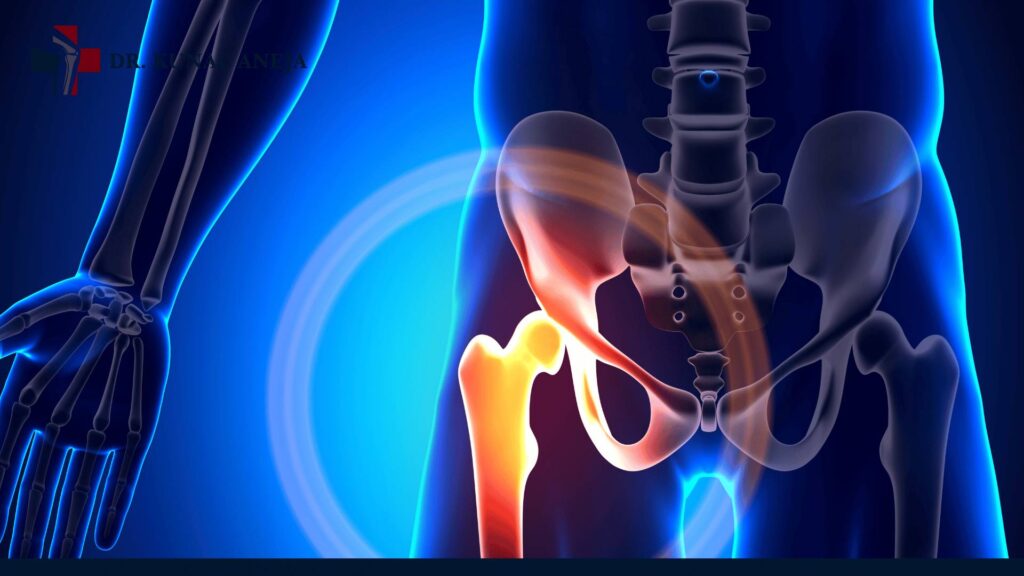Overview
When performed by an expert, hip replacement surgery can dramatically improve mobility, relieve chronic pain, and restore your quality of life. Delhi, being a hub of advanced medical care, is home to some of the most proficient orthopaedic surgeons. Among them, Dr. Kunal Aneja stands out as one of the best hip replacement surgeons in Delhi, known for his precision techniques and commitment to patient recovery.
However, even the most successful surgeries require careful recovery to ensure lasting results. In this article, we’ll explore the top 5 mistakes to avoid during hip replacement recovery and why choosing the right specialist makes all the difference.

Why Recovery After Hip Replacement Matters
Hip replacement is a major procedure, and how you manage your post-operative phase will directly impact:
- Your healing timeline
- Range of motion restoration
- Implant longevity
- Prevention of complications
Top 5 Mistakes to Avoid During Hip Replacement Recovery
1. Ignoring Physiotherapy and Movement
Many patients make the mistake of skipping or delaying physiotherapy, thinking rest alone will help them heal. In reality, guided physical therapy is crucial for:
- Improving joint flexibility
- Regaining strength in hip muscles
- Enhancing blood circulation to the surgical area
2. Resuming Daily Activities Too Soon
Prematurely walking without support or bending improperly can displace the implant or strain healing tissues. Patients often feel better after a few weeks and become overconfident, but:
- Overexertion can delay recovery
- It increases the risk of dislocation or falls
A structured return-to-activity protocol is followed in Dr. Aneja’s care system, ensuring each phase of recovery is timed correctly.
3. Not Following Hip Precautions at Home
Simple daily actions like crossing legs, low seating, or improper sleeping positions may seem harmless but can compromise surgical outcomes. Patients must:
- Use elevated toilet seats
- Sleep with a pillow between the legs
- Avoid twisting or pivoting suddenly
Choosing a surgeon like Dr. Kunal Aneja, who provides detailed lifestyle guidance post-surgery, helps patients avoid these errors.
4. Neglecting Nutritional and Hydration Needs
Recovery isn’t just about mobility—your body also needs the right fuel to rebuild tissue and manage inflammation. Common nutritional mistakes include:
- Skipping meals due to post-op lethargy
- Low protein or calcium intake
- Inadequate water consumption
With Dr. Aneja’s holistic approach, patients receive advice on dietary habits that promote faster healing.
5. Skipping Follow-Up Appointments
Even when you feel well, it’s essential to attend follow-up visits. These check-ups help detect:
- Early signs of implant loosening
- Infections
- Abnormal gait patterns or joint function
Why Choose Dr. Kunal Aneja for Hip Replacement Surgery in Delhi?
Patients searching for the best hip replacement surgeon in Delhi often prefer Dr. Aneja for his:
- Expertise in minimally invasive and robotic-assisted hip replacement
- Focus on patient-centric care and long-term mobility
- Global exposure to advanced surgical techniques
- Integrated recovery programs tailored to each individual
His surgical outcomes reflect high success rates, reduced hospital stays, and quicker returns to daily life, making him a top choice among orthopaedic patients across Delhi NCR.

Conclusion
Hip replacement surgery is a life-changing procedure—but the journey doesn’t end in the operation theatre. Avoiding recovery mistakes is key to regaining full mobility and comfort. By choosing an experienced expert like Dr. Kunal Aneja, one of the best hip replacement surgeons in Delhi, ensures comprehensive care from consultation through complete recovery.
FAQs
1. How long does it take to fully recover from hip replacement surgery?
Ans. Most patients recover within 3–6 months, but this varies depending on age, health, and adherence to rehabilitation.
2. Can I climb stairs after hip replacement?
Ans. Yes, but only after a few weeks of recovery and with proper technique guided by your physiotherapist.
3. Is robotic hip replacement better than traditional methods?
Ans. Robotic-assisted surgeries offer higher precision and may reduce recovery time. Dr. Aneja specializes in this advanced technique.
4. What is the biggest risk after hip surgery?
Ans. Dislocation of the hip joint is a common concern. Following movement precautions can significantly reduce this risk.
5. When can I drive after hip replacement surgery?
Ans. Most patients can resume driving 4–6 weeks post-surgery with surgeon approval.

